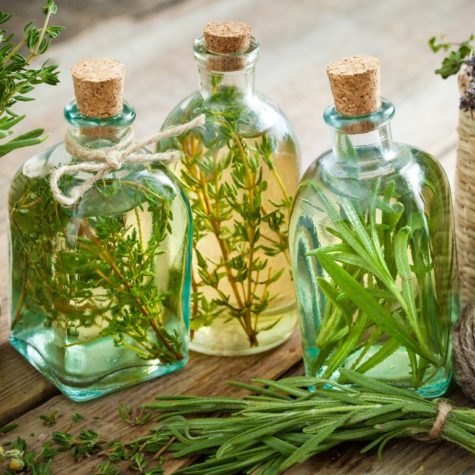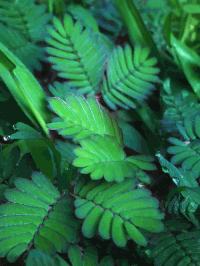Making Herb-Infused Vinegars
Vinegar is a useful solvent (the technical term is menstruum) for herbal extracts. Its acidity helps draw out certain constituents called alkaloids, which are often some of the most potent chemicals in an herb. It also helps dissolve plant cell walls and release mineral content. Apple cider vinegar is standard in these preparations.
Administration and Dosage Guidelines
Herbal vinegars may be useful as remedies in their own right, or they may be combined with honey to make an oxymel.
Herb-infused vinegars are frequently taken in doses of 1/2 to 1 fluid ounces at a time.
Shelf Life and Storage Guidelines
Like tinctures, store herbal vinegars in dark, light-blocking glass bottles in a cool, dry place. Vinegars will last at least 6 months and up to several years.
Necessary Tools, Equipment, or Ingredients
- Herbs. If using fresh, let wilt for a half day or so spread out on brown paper bags or a clean tabletop, this will allow some water content to evaporate. Then chop or run through a blender before you put in the jar and add the vinegar.
- Apple cider vinegar
- Mason jars of various sizes for maceration
- Dose and storage bottles
- Strainers
- Funnels
- Labels
Preparing Remedies – Step by Step
Fill a mason jar half to three-fourths full with the herb you want to tincture. If using roots, which tend to swell in liquid, stay on the half-full side. If using leaves or flowers, fill to the three-fourths mark.
Fill the jar to the top with apple cider vinegar.
If using a mason jar with a metal lid, insert a piece of wax paper under the jar lid before screwing down the ring. The vinegar fumes will degrade the coating on the underside of the jar lids. If you like, use plastic lids instead to avoid this issue.
Close securely and label the jar, including the date you started. For example: Nettle infused vinegar, 4/3/2019.
Macerate (allow the herbs to infuse in the vinegar) for 4 weeks. Shake the bottle every day or so to encourage maximum constituent release. Otherwise, keep in a cool, dark place.
Strain, re-bottle in colored glass vials, and add the finish date to the label.
Pros
- Vinegar’s innate benefits. Taken internally, vinegar stimulates digestion and can help with blood sugar control. Topically, it has antimicrobial, antifungal, and anti-inflammatory effects. Adding herbs enhances these further.
- No alcohol. Vinegar extracts can be given in place of tinctures for those who can’t consume alcohol, though they’re not quite as strong.
Cons
- The acidity. For some people who have heartburn or ulcers, vinegar’s acidity can be too irritating to tissues already tender and inflamed.
- Preparation time. Infused vinegars take at least 2 to 4 weeks to prepare.
Additional Considerations
Always use high-quality, preferably raw, apple cider vinegar – not distilled white vinegar. Raw apple cider vinegar has probiotic content that can be helpful in some circumstances, like when making a digestive formula as a vinegar extract.
Source: Herbal Medicine for Beginners
Rennie Luttrull: queen-annes-lace-seeds
Rosanna: Spignel aka Bald Money
Annamarie Squatrito: Fumitory
EILEEN Klinghagen: Pumpkin
Mahmudul Hasan: Celery



Leave a Reply